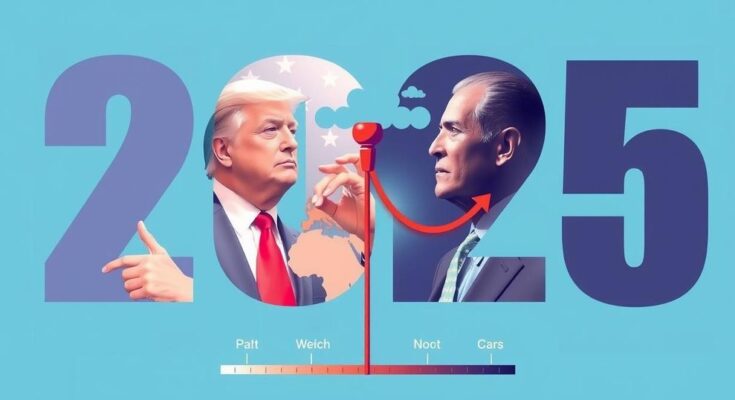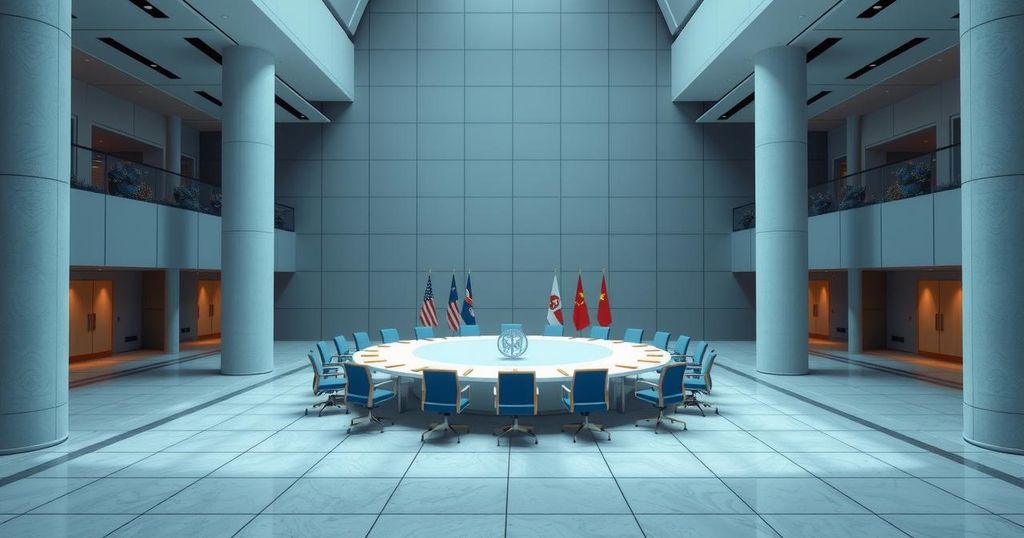In 2025, an unsettling electoral landscape looms with over 70 countries planning elections amid significant turmoil from conflicts, violence, and insecurity. Following a record-setting previous year, there is a pressing need for international support to establish credible electoral processes. The potential outcome impacts not only local governance but also broader democratic interactions globally, necessitating immediate attention to stabilize these electoral frameworks.
As 2025 approaches, the focus on elections intensifies following a record-setting year labeled as the “super-year of elections,” where over 800 million individuals participated in elections across approximately 80 nations. However, the upcoming year presents an unsettling landscape characterized by political unrest, violence, and insecurity in numerous countries planning to hold elections. Many nations grapple with internal conflicts that may hinder their ability to conduct substantial elections, potentially leading to further grievances rather than resolutions. This situation underscores the critical role of the international community in fostering legitimate electoral processes amidst chaos.
Despite the anticipation of elections in over 70 nations, challenges abound. Countries such as Libya, Mali, and Burkina Faso have not held significant elections since 2014 due to dissent among various factions. Others, like Belarus, witness oppressive regime tactics ahead of elections, which stifle dissent and impair the fundamental rights of voters. In Bolivia, renewed polarization and economic instability may also disrupt the electoral climate. The diversity of challenges ranging from military controls to organized crime necessitates strategies for fostering credible elections under such conditions.
Building an environment conducive to credible elections requires multifaceted strategies. Immediate goals should involve stabilizing security to allow uninterrupted participation from candidates, voters, and observers. The removal of oppressive legal frameworks and the promotion of media pluralism can foster an informed electorate. It is crucial that political parties remain responsive to the electorate’s needs rather than becoming consumed by partisan conflicts. Additionally, increasing cybersecurity measures and infrastructure rebuilding is essential to facilitate the election process, especially in post-conflict scenarios.
As countries prepare for elections, they face the daunting prospect of addressing the dual challenges of human capital loss and logistical barriers that exacerbate electoral inequality. Delays in the electoral process may signify attempts by entrenched powers to maintain control. Therefore, timely intervention and support from international entities are vital in addressing grievances that could derail the electoral process. Studies, such as those conducted by the Varieties of Democracy (V-Dem) Project, emphasize the importance of external assistance in promoting democratic resilience.
Ultimately, as nations navigate the tumultuous landscape leading to elections in 2025, there is a pressing need for robust leadership and international support. This assistance is instrumental in helping countries stabilize their electoral environments, ensuring that elections reflect the will of their citizens effectively and legitimately, thereby laying the groundwork for sustainable peace and democratic governance.
The geopolitical context for 2025 highlights significant electoral activities following what has been termed the “super-year of elections.” In 2023, elections occurred in a multitude of countries, reflecting a trend toward increased democratic engagement worldwide. However, more than 70 nations slated for upcoming elections face threats from conflict, political violence, and instability. These conditions pose serious risks to the integrity of electoral processes and the legitimacy of their outcomes. Some nations, like Libya and Belarus, continue to experience prolonged political standoffs that complicate the election landscape. With such a backdrop, understanding the complexities involved in facilitating credible elections is paramount for achieving peaceful transitions of power.
In conclusion, the upcoming elections in 2025 are poised to unfold in an environment riddled with challenges stemming from conflict and political unrest. There is an urgent need for strategic interventions to stabilize electoral frameworks and enable meaningful civic participation. Without concerted efforts from both national leaders and the international community, the potential for further disenfranchisement and unrest is heightened. Supporting transparent, inclusive, and credible elections is essential for fostering democratic governance globally, particularly in nations facing turmoil.
Original Source: www.ifes.org




